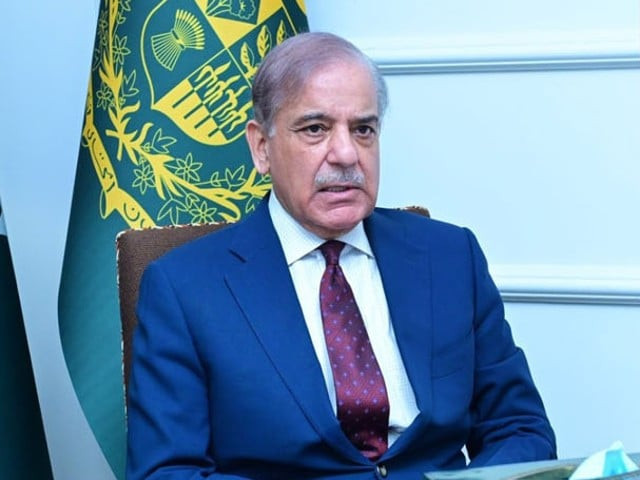PM unveils initiatives for govt reform
Announces plans for minimum economic protection to govt functionaries

In a recent cabinet meeting, Prime Minister Shehbaz Sharif stated that minimum economic protection could be provided to government functionaries. The prime minister also indicated initiating a “reward programme” for high-performing bureaucrats in ministries by implementing a 100% increase in salaries.
The PM appreciated the role of proactive secretaries heading Divisions for their depth of sector-specific knowledge and professional calibre, noting that not all secretaries were equally competent. He mentioned that high performers would be suitably rewarded while underperformers would be held accountable for their inefficiency.
Sharif mentioned that incentives would also be provided to high performers, as was done during his tenure as the Chief Minister of Punjab in 2008 when a 100% raise was provided in the salaries of police and law officers.
The premier urged civil servants to abandon the attitude of red-tapism and work on simplifying processes. He applauded the role of Special Investment Facilitating Council (SIFC) in this regard, stating that it provided a robust mechanism to address hurdles in implementation effectively and facilitate the ease of doing business.
The premier also observed that there was too much emphasis on paperwork-driven processes in the ministries and that out-of-the-box problem resolution was only marginal.
Read SIFC measures yielding positive results: PM
He stressed the need to develop mechanisms that encouraged creative thinking to achieve targets and new tools and strategies focused on outcomes. Automation across all government departments was also stressed.
Focusing on governance, the PM outlined the government’s national agenda, highlighting national priorities and the vision for development to put Pakistan’s economy on a path of sustained development interventions in strategic sectors such as information technology, power, minerals, defence, export-oriented manufacturing, trade, commerce, and agriculture over the next five years.
He underscored that all ministries needed to define targets and objectives for ‘100-days’, ‘three months’, ‘annual’, and ‘five-year’ timeframes. He mentioned that guidelines had already been circulated to all ministries, providing broad parameters for their guidance. He stressed that each ministry was required to work towards achieving its set of targets, prepare its strategies, and identify and mobilise resources, including human resources, to efficiently implement its action plan and achieve its targets. He added that each ministry would be responsible for its performance and achieving its set of targets, for which it shall have authority, but only with responsibility and accountability. The prime minister highlighted that achieving these targets was central to the progress and development of the country.
Sharif informed the cabinet that efforts were also underway on federal government expenditures, and the committee constituted recommendations on reducing federal government expenditures, headed by the chairman of the Planning Commission - who would present a practical plan for expenditure to the cabinet.
The prime minister also shared that efforts were being made to resolve the prolonged pendency of tax recovery cases, worth trillions of rupees, before tribunals and courts. He underscored the need to engage quality human resources for Tax Tribunals, selected after tests by well-reputed educational institutions like Livisand NUST.
He noted that very soon the economy and finances of the country were on track, quoting that where there is a will, there is a way.
It was further informed that the mid-year review report provides a brief economic update on the first half of the current financial year of fiscal performance, covering both revenues and expenditures.
The report also highlights operations undertaken by the government through domestic and external means.
It was added that during the period under review, the agricultural sector saw promising performance with promising prospects. Mark-up payments remained a challenge for the government that kept a strict check on other expenditures through vigorous implementation of austerity measures approved by the federal cabinet.
Financing was largely undertaken through domestic sources, with a highlight of the first-ever successful auction of Ijara Sukuk on the PSX.
Published in The Express Tribune, April 6th, 2024.
Like Business on Facebook, follow @TribuneBiz on Twitter to stay informed and join in the conversation.



1733130350-0/Untitled-design-(76)1733130350-0-208x130.webp)















COMMENTS
Comments are moderated and generally will be posted if they are on-topic and not abusive.
For more information, please see our Comments FAQ